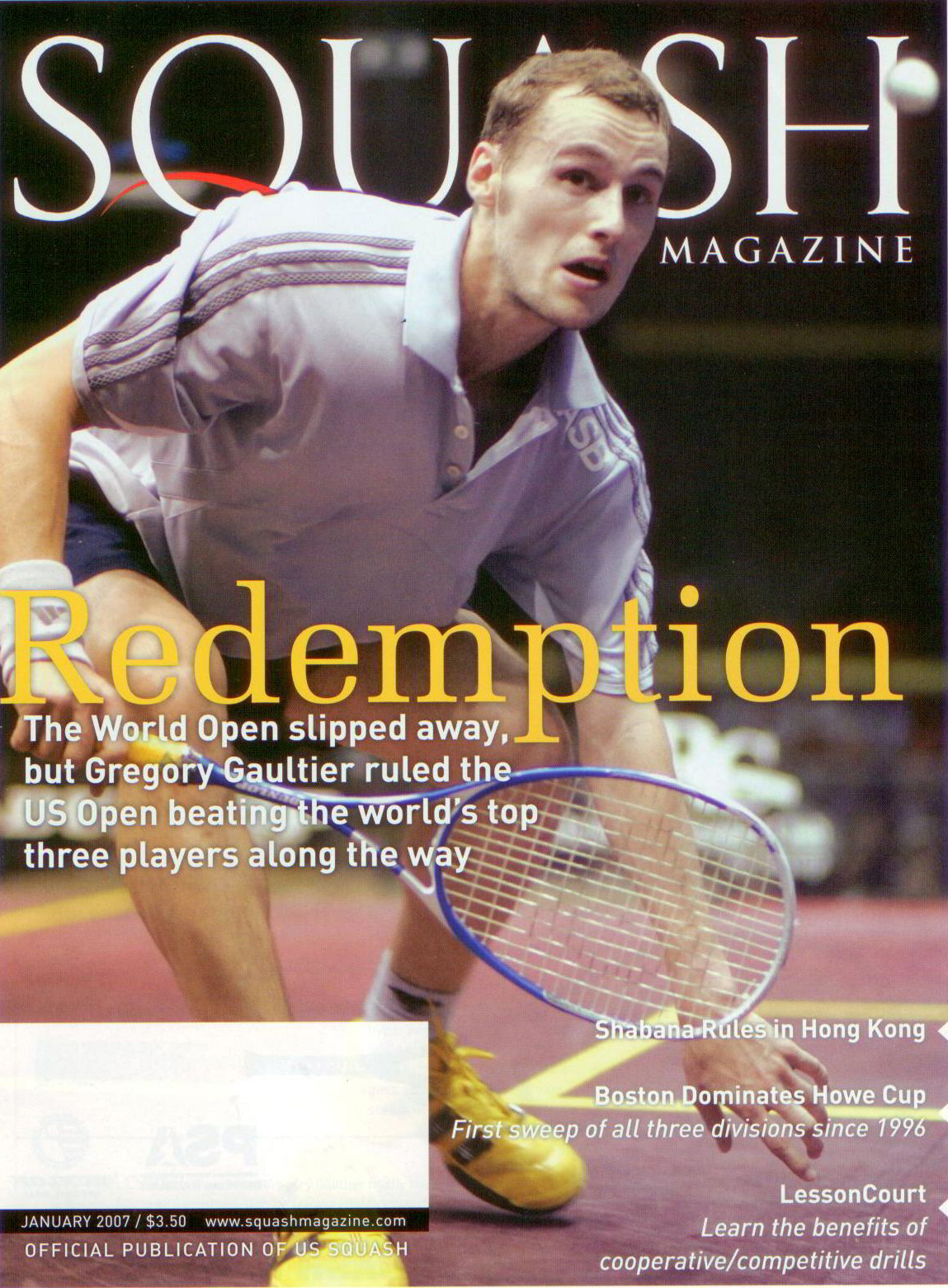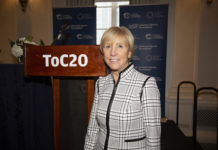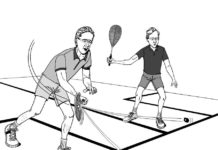OVERLOOKED
For years I have been reading Will’s World in Squash Magazine and always find interesting material there. Upon reading the latest article about multiple winners of national titles (Streaks Begin and End), I was surprised that you neglected to mention Dick Daly, formerly of Seattle, now residing in Arizona. The champions mentioned (Shabana and Latasha Khan, Jay Nelson, etc.) certainly are deserving of recognition, but I think the name of Dick Daly should be included among the repeat title winners because he has won 16 national titles in both hardball and softball over the past 28 years (seven hardball wins, nine softball wins), not to mention eight finalist appearances. He also won two gold medals in the Nike World Masters Squash Tournament held in Portland, Oregon in 1998.
I realize it is probably difficult to research and verify the names of the national title winners now in the absence of the Official Yearbooks of the USSRA that were published regularly over the years, especially when hardball squash was predominant.
Another multiple national champion not mentioned among those highlighted in the article is Charlie Butt, of Maine, who should be recognized for winning veteran and senior titles almost every time he entered. Charlie is indeed a great champion and a multiple national champion titleholder.
Dick is 84 years old now and still enjoys squash games when he can, giving tips on the finer points of squash to 30-somethings at his club. He lives life at a slower pace now and spends time helping others. Younger players will frequently accost Dick at his club asking how old he is and expressing hope to still be playing squash when they are 84.
Again, I must say I appreciate your interesting and informative articles in Squash Magazine over the years. I hope you will not consider this letter a criticism of your work, but rather realize that I have had access to more complete information than you have, since I was a tense spectator at every one of Dick Daly’s national squash matches over the 30 years that we have been happily married. Keep the columns coming.
Mary Daly
Rio Verde, AZ
MORE ADDICTIONS
You created a monster in the Letters column of Squash Magazine!
I see quite a few responses to the Squash Addicts article. For the record, I imagine professionals, squash pros and squash coaches should not submit their scores. But anyhow…
My score was 118 excluding the bonus question. My Associate Coach here, Tariq Mohammad, scored 68 excluding the bonus question. With the bonus question, the PC files (mostly files created by myself, not copied from websites, etc), my score exceeds 500.
And what if you have too many movies on your computer and too many DVDs and videos on squash?
There should be bonus points for having an e-mail with the word “squash” in it, for having a squash-related license plate (I know at least two people with one), planning vacations to squash destinations, for carrying squash balls and Karakal grips in your computer bag or briefcase, for spending at least $100 dollars per year on eyeguards.
And extra points for having squash shirts from the most unusual places abroad (I have shirts from several Caribbean islands and from Eastern European countries).
But in the end, maybe those who work in the squash business should be DQ’d.
Doug Eng, EdD PhD
Director of Squash
Tufts University
BREAK TIME
I read your publisher’s note with interest, and your request for opinions on the 90-second break rule between games. It’s been my experience that it’s such a short period of time that it doesn’t make much of a difference, either on the pro or amateur level. It really takes five minutes or so for a rest and recovery (impractical in squash, and probably most other sports except football which seems to have a two minute TV time-out every two minutes).
As an ex-Division I amateur wrestler in college (probably one of the most physically demanding sports for conditioning), there are no breaks between the three periods. In international and AAU competition, there was a time when there were one-minute breaks between periods. Wrestlers in condition didn’t need the minute or didn’t even want it; in fact, it just “extended” the match and in some ways made you more exhausted at the end than you would have been without the break.
Maybe we need the 90 seconds for the referees to compose themselves for the next game and reflect on some of their questionable calls?
One more thing I’ve noticed—watching both the pros and the amateurs. The 90-second rule is rather informal and rarely enforced. (It ends up being more like 3 minutes— the players kind of drift back on the court, and then they hit for another 30 seconds to get the ball warm again).
Doug Garr
New York, NY





